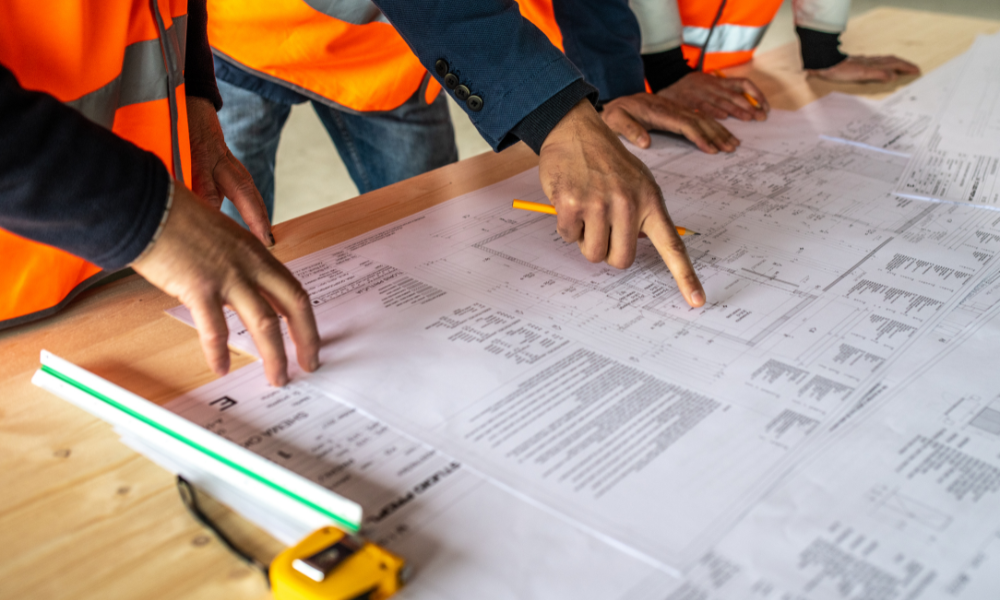8 Common Mistakes in Queensland Development Applications
Writing and piecing together a development application in Queensland is a big process and often challenging, even for a seasoned professional. We’d like to make that process easier for you, by outlining what not to do in your Queensland development application.
1. Getting The Assessment Level Wrong
There is one part of a Queensland development application guaranteed to create major issues with your assessment – getting your development’s assessment level right.
Assessment Levels assess the extent of you development’s impacts – to what degree does it fit the zone? Each assessment level is a step up in effort and information required, which is why getting it wrong can make such a mess. The assessment levels are:
- Accepted – in general, whilst this doesn’t require an application at all, you will still need to check the zone code to ensure you move forward with your development to meet the legislation.
- Code – this will require an application to council with responses to each applicable code in relation to the development. Whilst your type of development suits the zone, when you break it down into tiny pieces, does it comply?
- Impact – Your development might fit the zone but needs some convincing. Your development is on a precipice. The Council can be convinced that you can fit in the zone, but making a poor case can result in denial. This requires an application and public notification.
- Prohibited – your development type is identified as not fitting the zone and Council will not give it consideration. Your best bet is to have a pre-lodgement meeting with Council to strategise ways to move it from prohibited to impact.
Want to avoid incorrect assessment levels and starting over with your application? Hire a Queensland town planner to get it right the first time.
2. Not Truly Understanding Your Site
How well do you understand your site and its constraints? Your development site can be impacted by zone codes, overlay code, neighbourhood codes, development codes, and use codes. Here is what to check for BEFORE investing in the site or getting too deep into planning:
- Zone Codes – these codes ultimately deem whether your development is suitable or likely to be acceptable within its zone (e.g. medium residential zone, industry zone, centre zone, rural zone).
- Overlay Codes – these codes (and their mapping) identify areas of your lot impacted by natural hazards, biodiversity regulations, and infrastructure and transport requirements. Sometimes you can plan your development to meet these codes, but sometimes you simply can’t develop in that impacted space at all.
- Neighbourhood Codes – these function similarly to zone codes (and must be addressed as well as the zone code), but they break up large areas so that legislation addresses the uniqueness of each area.
- Development Codes – these determine whether development meets specific legislation regarding aspects like building specifications, landscaping, and site layout. The good news is – at least you know how to adjust your plans to improve approval chances!
- Use Codes – these codes set out legislation regarding specific uses such as childcare, short-term accommodation, retail, and food & drink outlets. They are similar in usefulness as development codes – their specifics can strengthen rather than hinder your development project.
A few common, specific site issues to look out for are:
- Whether legislated minimum lot sizes will suit your planned subdivision
- Whether you’re allowed to clear vegetation
- Whether bushfire or flood hazard levels allow for development
- Whether your council supports specific unique or contentious development types (some don’t favour air bnb or mass food-chains, for instance)

3. Poor Response to Performance Outcomes
Queensland’s planning system is performance based. When writing your development application report, you will need to address all relevant codes. These codes have ‘performance outcomes’ that are breakdowns of specific requirements.
This might seem picky or painful, however you need to look at them not as a way to hinder your development, but rather to strengthen and improve it. Tips for creating strong responses:
- Your responses should be concise, with technical specifications where required
- Your responses should address the code entirely OR prove how your alternative approach exceeds the code
- Lay out your responses in a table in the same manner they are presented – Performance Outcomes (the legislation), Acceptable Outcomes (the specific requirements), and then your added Code Response column.
4. Inconsistency Between Application Documents
This issue is simple common sense, but you’d be surprised what errors can go unnoticed before it’s too late. When putting together your development application, ask yourself questions such as:
- Does my site plan match up with what I’ve said in the code responses?
- Do my building plans match up with what I’ve said in the code responses?
- Do my summaries match up with code responses?
- Does my DA Form 1 correlate with the details in my application report?
- Does the property owner identified in my application match the property owner identified in my title search?
There are plenty more specific questions to ask yourself, but what it boils down to is: Does each piece of paper you’re submitting match up with your development application report?
5. Ignoring Pre-Lodgement Advice
This is another common-sense issue that is easily avoided. Your Local Government Council is who ultimately decides whether your development is approved or denied. It stands to reason that any pre-lodgement advice given, whilst not guaranteeing approval, is advice you absolutely should follow when preparing your development application.
These pre-lodgement sessions are a vital tool, addressing any specific issues with your development’s potential to find ways to mould it to Council requirements.

6. Generic Technical & Infrastructure Reports
Technical reports should be TECHNICAL – this means they should be specific to your project with in-depth information. This reduces the chances of denial and prevents Requests for Information from Council, which can delay the progress of your project.
Infrastructure reports and plans should show how impacts on the Council’s infrastructure, such as stormwater and sewerage, will be mitigated – specific to your project.
7. Poor Public Notification Execution
If your development identifies as requiring impact assessment, you’ve got a bit extra work proving your case in your development application. Part of your impact assessment process involves public notification. Minimum requirements are:
- Newspaper notice
- On-site signage
- Adjoining landowner notification (letter)
Consideration of Queensland’s legislated timeline for developments is important for smooth assessment and approval. The public notification must commence within 20 business days of receiving your confirmation notice that your application has been properly made. The public notification period takes 15 days (unless specified otherwise), and after completion the applicant must provide written notice of public notification completion to the assessment manager within 10 business days.
Failure to meet the timeline may result in closure of your application, without approval, which will require either negotiation with the Council or starting over with the application process.
8. Inadequate Response To Information Requests
Information requests are issued because they need more information; more specifics. It’s important to provide as much detail as possible, including potentially lodging new or amended plans and technical reports.
Failure to do so can result in either rejection of your application or a further drawn-out application period.
Getting It Done Right The First Time
Whilst there is no reason you can’t do your own development application, it is highly recommended that you hire a qualified and experienced town planner instead.
The price you pay for a town planner ensures efficient processes and concise responses; not to mention the reduced time, workload, and stress for you!
Planning Approval Group are ready and waiting to bring your development plans to fruition!
- Contact Us Directly
- Have Your Site Assessed
- Check Out Our Free Resources!
- Read More About Our Services
- Read More Of Our Insights
Stay Informed about key information that will make your development a success!
SIGN UP FOR OUR NEWSLETTER










